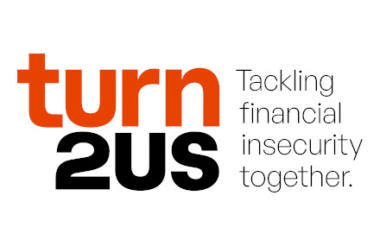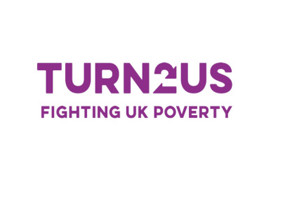The national anti-poverty charity Turn2us recently conducted reviews of two of its services to determine how equitable they were in reaching and serving different communities. The charity’s leadership is acutely aware of the inequalities and unfairness that characterises UK society generally, and is anxious that their organisation does all it can to avoid mirroring them.
Turn2us CEO Thomas Lawson explains: “If our sector is recreating some of those barriers and some of that oppression, then we’re not in a position to tackle those problems – we don’t have the credibility or authority to tell society to be better. So, our sector as a whole has to hold itself to account for its patriarchal oppression, its racist oppression, its homophobic and queerphobic oppression.”
Evidence gathered by Turn2us and others shows that it is statistically more likely that people of colour will experience financial hardship and barriers to economic security than white people, so Lawson says it is vital that the charity assesses whether it is reaching them.
He says: “If Turn2us is not facing into the dynamics within its own organisation then we do not – and I do not – have the credibility to have this job. So, it has to hold itself to account for the people for whom we exist.”
Review of Elizabeth Finn Fund
The first service that Turn2us reviewed was its Elizabeth Finn Fund (EFF), which provides grants of £1,000 to £2,500 to people experiencing financial hardship. It knew that applicants from minoritised ethnic groups were less likely to receive a grant, so it wanted to delve deeper to find out why and to hear about the experiences of people from these groups.
Turn2us contacted 147 applicants who were refused a grant between 2019 and 2021. This resulted in nine interviews and 27 survey responses.
Over half of the applicants interviewed felt there was conscious or unconscious bias at play in their interactions with the charity. Some respondents said that they felt a power imbalance reminiscent of the benefits system.
In response to the findings, the charity has temporarily closed the EFF to undertake a thorough redesign of it in partnership with people who have lived experience of financial insecurity.
Sonya Ruparel, director of programmes and partnerships at Turn2us, admits that the results of the research did not come as a huge shock to the charity’s team.
“I don’t think some of us were very surprised. But I think we needed the evidence to make the changes,” she says.
Lawson adds that the EFF was a very old funding structure that had not been looked at for some time. To the best of his knowledge, this was the first time the programme had been evaluated through an equity, diversity and inclusion (EDI) lens.
Nonetheless, says Lawson, it was difficult for the charity, and for him personally, to learn that “we were causing harm to people of colour when they were applying for our grants”.
He explains: “Personally, I felt accountable. I’m the chief executive; I’m accountable for the harm that this organisation has caused under my watch and that feeling is why I have a responsibility as a chief executive to support the organisation to address it.”
But overall, Lawson adds, “it’s irrelevant if we felt any of those difficult feelings, because the people for whom the organisation exists were experiencing harm – and my feelings in the face of that are irrelevant”.
Turn2us is now overhauling the EFF fund model with its co-production partners – people with lived experience of poverty – and the fund is set to relaunch later this year.
Ruparel says: “We are redesigning our approach to grants entirely and taking the opportunity to see deeply how we can put people’s dignity and decision-making more at the heart of how we make grants in the future.”
She emphasises that Turn2us is continuing to help people in the meantime, but grant programmes currently available are more short-term.
Review of Grants Search Tool
Turn2us also conducted an independent review of its Grants Search Tool, which allows people in financial hardship to identify funds they can apply to.
The Social Investment Consultancy (TSIC) assessed the tool through a racial equity lens and identified the changes required to ensure it is not contributing to racial inequity.
This review was prompted by data that Turn2us analysed in 2020, which showed that people from minoritised groups were underrepresented among users of the tool. Subsequently, the charity worked to identify barriers that stopped people from those communities using it.
The findings were from TSIC’s desk review, two workshops, two interviews with experts on digital products and seven user research interviews with people from minoritised ethnic communities.
TSIC identified concerns that the tool was exhibiting systemic, institutional and interpersonal racism. For example, systemic racism was demonstrated via not enough targeted funds for ethnic minorities and not enough grants available for ethnic minorities facing health conditions. Interpersonal racism was evident in the fact that English was the only language available to access the data.
It was also discovered that the tool could be perpetuating institutional racism by failing to tackle perceptions among users that Turn2us was a middle-class and politically conservative organisation.
While the Grants Search Tool remains open to use, the charity is now working on bringing the TSIC’s recommendations to life, to make it a more equitable service.
Tackling historical perceptions
When pressed on the origins of these perceptions of Turn2us as middle-class and conservative, Lawson details how modern civil society grew up out of the industrial revolution, which created an extraordinary disparity of wealth where richer people felt compelled to help those less fortunate.
Though this was well-meaning, “at the heart of that was an othering”, he says. In this way, “civil society upholds oppression”, and this is a problem the sector must fix.
Ruparel agrees that institutional racism is prevalent throughout civil society and that Turn2us needs to address its own issues.
She says: “We have been on this journey of really trying to understand how we could, in future, become anti-racist, and part of that was looking at that tool and asking, ‘how can we look at it through an equity lens?’ So, we hadn’t previously identified a problem, but we unearthed that there are issues within it that we can now address when we rebuild it.”
Ruparel says the charity is trying to do this not only through the equity reviews, but through increasing diverse representation on its board and within the staff team.
“Especially when I joined, our staff team was very white. We have been addressing that in the last three years, but when I came in, I was quite surprised at how white it was and I think that also tells a story that maybe people feel that we don’t exist to support them because of who we are – and we are trying to address that.”
Striving for anti-racism
Both Ruparel and Lawson emphasise that merely not being racist as an organisation is not enough, and that charities must strive to be actively anti-racist.
Lawson explains: “Just not being racist condones racism. If you’re simply passively not being racist, ultimately, you’re being racist because you’re condoning it and as a white ally then I’m contributing to it. If I don’t speak out when I see it or feel it or hear it then I’m complicit and that is true for the organisation. We are complicit if we don’t tackle it.”
Ruparel adds: “If we are not supporting people affected by social injustice and tackling social injustice in the work that we do, we’re buying into a system that is creating those injustices and we need to challenge that system. We cannot be part of it.
“We are thinking very hard about how can we support people through our work to tackle those systems of injustice. It feels critical that that’s what we do and we work with other organisations that are doing that as well.”
Learning in the open
Lawson adds that Turn2us is deliberately publishing its findings so that it is seen to be “learning in the open”. He said that although it might be tempting for organisations to uncover these sorts of outcomes and figure out how to address them behind the scenes, this is not acceptable.
He says: “That is us holding onto power and protecting ourselves, instead of being accountable to the people for whom we exist. We will probably, as we learn in the open, misstep. But by learning in the open we are inviting people to hold us to account.”
Ruparel says that Turn2us plans to examine more of its services, products and programmes – including its flagship Benefits Calculator – through an EDI lens. Lawson also pledges to “make sure the EDI lens is alive in annual reports and communications, and is at the heart of how we communicate with the world”. The approach will also inform its next five-year strategy, which will go live on 1 April 2023.
Lawson says: “If Turn2us, by being vulnerable and learning in the open, has an impact on other grantmakers, that is a good thing.”
The pair urge other charities to also examine their organisations through an equity lens. “Let’s learn together,” Lawson says.
Related Articles
How the new strategy at Turn2us was co-produced with people who have lived experience of poverty
Thomas Lawson explains how the new strategy developed by Turn2us was led by experts and experience.
#CharitySoWhite: The sector has shied away from addressing institutional racism for too long. That must change
The #CharitySoWhite organising team shares their thoughts about the next steps for the campaign to get the sector to face up to, and deal with, the problem of institutional racism.












